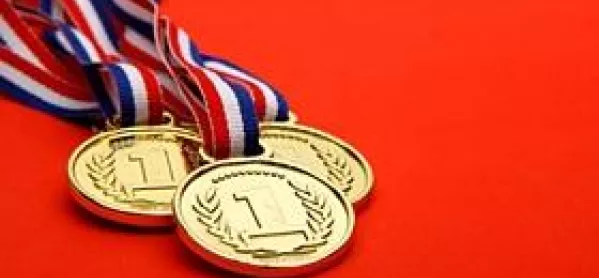Golden Games won’t shrink obesity

The Scottish government has described the Olympics as “an unrivalled opportunity to boost participation in sport” and just announced pound;8 million a year to support Scotland’s elite athletes ahead of Glasgow 2014.
But the events will do nothing to raise activity among the general population and combat obesity, an academic has predicted.
“If young people have made a commitment to sport, this (the Olympic Games) may change their allegiance, but to generate new participants and broader levels of physical activity - that’s quite a different thing,” said Fred Coalter, a former professor of sports policy at the University of Stirling, who gave evidence to the Scottish Parliament’s health and sport committee when it investigated how to deliver a lasting legacy following the 2014 Commonwealth Games in Glasgow.
Admiration did not lead to emulation, Professor Coalter stressed: “When it comes to elite sport and the extremes you see at the Olympics, people just look at that and say, `I really admire that but I could never do it myself.’”
A study by sportscotland into the impact of curling after the women’s team won gold in 2002 found a rise in participation in curling, but “the success has had the greatest influence on those who were already active in sport”.
The authors cautioned: “Care should be taken when asserting that success on the world stage in sport has an impact on general levels of participation.”
Meanwhile, a review of studies into the impact of major multi-sport events published in the British Medical Journal in 2010 found it was impossible to confirm or refute expectations about health and socio-economic benefits for host populations
The Scottish government has cited three ways in which it is ensuring young people can “go all the way”: investment in PE through the target of two hours of physical activity a week for all pupils; the Active Schools network, and the introduction of community sports hubs (see panel, left).
However, all these measures deal with the issue of supply - not demand, Professor Coalter continued.
“The Olympics is a giant exercise in social marketing: `Look at all this, would you not think about doing it?’ The evidence shows social marketing raises awareness and influences intentions but rarely changes behaviour,” he said.
There might be an increase in the number of people playing tennis because they have been inspired by Andy Murray or taking up judo because they saw Gemma Gibbons win silver, but “a guy on a housing estate in Glasgow isn’t suddenly going to take up biking,” he cautioned.
“The country with the lowest participation rate in sport and highest obesity rate is the country that dominated the Olympics - the US.”
Scandinavian countries have high rates of activity. That was down to the nature of their societies - there was far less inequality, explained Professor Coulter.
“We have 1 million young people under 24 unemployed and we’re going to sell them sport?”
emma.seith@tess.co.uk
Private schools and sporting excellence
Private schools are good at sport because it’s central to their ethos. The middle classes play sport anyway and parental support is strong, says Fred Coalter, former professor of sports policy at the University of Stirling.
At the last Olympics, Beijing 2008, a third of Team GB had been educated at independent schools, nearly 40 per cent of British medal winners and 50 per cent of the gold medallists. The figures prompted Lord Moynihan, chairman of the British Olympic Association, to call earlier this month for an overhaul of school sport.
Scottish medal winners educated privately include cyclist Sir Chris Hoy, canoeist David Florence and rower Heather Stanning.
The boarding school set-up was highly successful at preparing individuals for a life as a professional athlete, said Marcel du Coudray, head of the Tennis Academy Scotland based at Edinburgh private schools Merchiston and St George’s.
A private education is no guarantee of success but the opportunities were there to access top coaching and training, continued Mr du Coudray, who worked part-time with tennis player Nikolay Davydenko, who was knocked out of Wimbledon this year by Andy Murray.
“It’s about being given opportunities and I think private education can offer more of that,” he said.
The Tennis Academy costs pound;500 a term on top of the school fees, but there were fully funded places and Mr du Coudray insisted a child with talent would be assured a place.
“We are going to invest a lot of time into these kids,” he said. “First and foremost they have to have the talent and the potential.”
SPORTS HUBS
As part of the 2014 Glasgow Commonwealth Games legacy, 150 community sports hubs are planned, with half of them set to be based in schools.
In North Lanarkshire the council has opted to base all of its 11 hubs - six of which are up and running - in schools.
“We felt this gave us the best opportunity to build on the sporting opportunities currently offered in schools via the Active Schools network and teachers,” said Ian Russell, the area’s Active Schools assistant manager.
The number of clubs based in the six schools has increased from 50 to 75 in just over a year and they play host to 2,110 junior members and 3,208 members.
“The increase in members is still being collated. However, a large increase is expected,” said Mr Russell.
The hub at St Maurice’s High in Cumbernauld was launched in April last year. BMX, badminton, judo, football and basketball all take place there.
Original headline: Games were golden but they `won’t combat obesity’
Keep reading for just £1 per month
You've reached your limit of free articles this month. Subscribe for £1 per month for three months and get:
- Unlimited access to all Tes magazine content
- Exclusive subscriber-only stories
- Award-winning email newsletters



